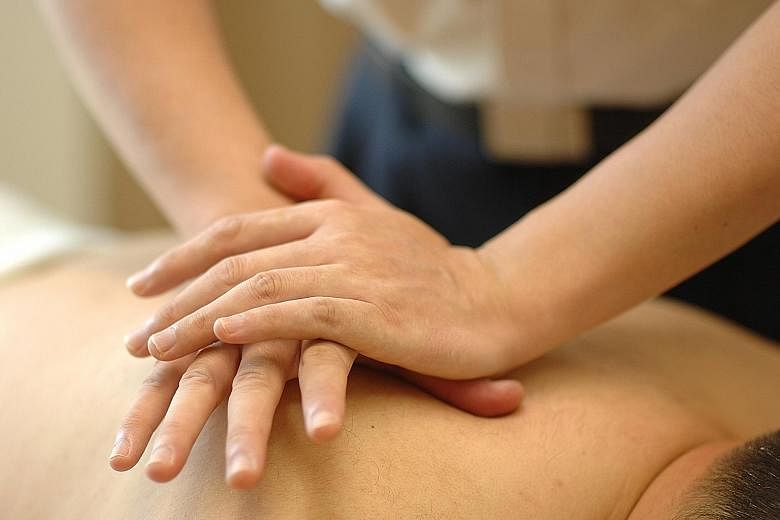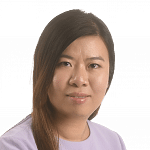Knowledge quest to keep standards high
The move to get traditional Chinese medicine (TCM) practitioners to constantly upgrade their knowledge is gaining ground.
It is fuelled by a national scheme that kicked off in 2013, which brings together training colleges and institutes to conduct seminars, workshops and courses.
Known as the Continuing TCM Education (CTE) programme, it allows registered physicians and acupuncturists to claim credit points when they attend approved training events.
Although the scheme is voluntary, there has been a good response from practitioners eager to upgrade.
As of Dec 31 last year, 1,706 registered practitioners have taken part in the scheme, said the Traditional Chinese Medicine Practitioners Board (TCMPB) under the Health Ministry.
That is about 60 per cent of the 2,980 TCM physicians and acupuncturists registered then.
"Although the CTE programme is currently on a voluntary basis, TCM practitioners are strongly encouraged to participate actively," said the board's spokesman.
This is to maintain a high standard of TCM practice to provide quality services to the public, she said.
Under the scheme, practitioners can claim credits of up to 25 points a year, or 50 points over two years.
The points are recorded by the TCMPB. A full-day course may be worth six credit points, while a six-day course that lasts three hours per session may be worth 18 points.
As many as 536 local training events have been conducted so far, helmed by 13 accredited training providers, such as the Institute of Chinese Medical Studies, the Singapore College of TCM and Nanyang Technological University's School of Biological Sciences.
Most recently, Eu Yan Sang Academy opened its doors in June last year to co-organise and offer CTE courses, the first private company to do so.
Even physicians who have been treating patients for decades are hungry for more knowledge.
Mr Tan Hwee Nguan, 62, who has 31 years of experience under his belt, attended courses on thyroid, cancer and infertility. His credit points for last year added up to 52 - double the yearly claimable limit.
"It is useful to understand various ailments through different perspectives, treatment methods and approaches," said Mr Tan, a volunteer senior physician at the Singapore Chung Hwa Medical Institution.
"It helps physicians to think out of the box - it is not always necessary to follow the traditional methods," he said.
For example, there could be new studies that shed light on medicinal substances and its effectiveness on certain ailments.
Besides local and overseas TCM seminars, workshops and courses, practitioners can also claim points for the publication of TCM academic books, papers and reading of professional books or journals, said the TCMPB spokesman.
To make it easier for practitioners to keep track of their progress, the board will be implementing a new online system later this year.
"The new system will allow TCM practitioners to submit CTE point claims, review points and search for accredited workshops and courses that they can attend," she said.
The idea of continuing education is not new to the TCM industry.
The Singapore College of TCM, for instance, started its own continuing education programme in 2000 to allow practitioners and students "to strengthen their professional knowledge and skills, elevate healthcare awareness and keep abreast of changes in the TCM landscape", said a college spokesman.
"Besides TCM courses, Western medical topics that are relevant to the practice of TCM are also included," he said.
"The courses are held all year round, and the college also invites renowned overseas TCM experts to conduct them."
Eu Yan Sang, too, has run an in-house continuing education programme since 2006.
This is compulsory for all physicians working at the private healthcare group's 24 TCM clinics here. Each physician must fulfil at least eight hours of training a year.
"We want to upgrade the industry. At the end of the day, consumers will benefit," said Mr Richard Eu, group chief executive officer of Eu Yan Sang International.
For instance, the training may involve talks by radiologists, which comes in handy when patients bring their X-ray results and other medical scans to TCM physicians.
It is hoped that the continuing education framework is a step towards putting Chinese medicine on a par with mainstream medicine.
"We want equal recognition between TCM and Western medicine, a level playing field," said Mr Eu.
Indeed, the CTE programme is similar to the Continuing Medical Education scheme for Western medicine-trained doctors in Singapore.
But the key difference is that the latter is compulsory: doctors have to meet certain requirements to renew their practising certificates.
The challenge now, perhaps, is to mobilise TCM practitioners who may be resistant to training.
Making course fees more affordable could help, suggested Mr Tan, who has been paying fees out of his own pocket. He had attended a few three-hour courses in the past year that cost $75 to $105 each.
"If the Workforce Development Agency, for instance, is able to subsidise part of the training expenses, it will definitely encourage physicians to go the extra mile," he said.


